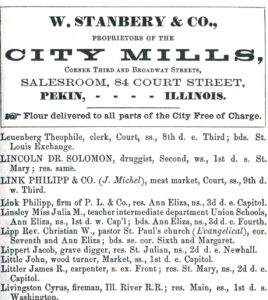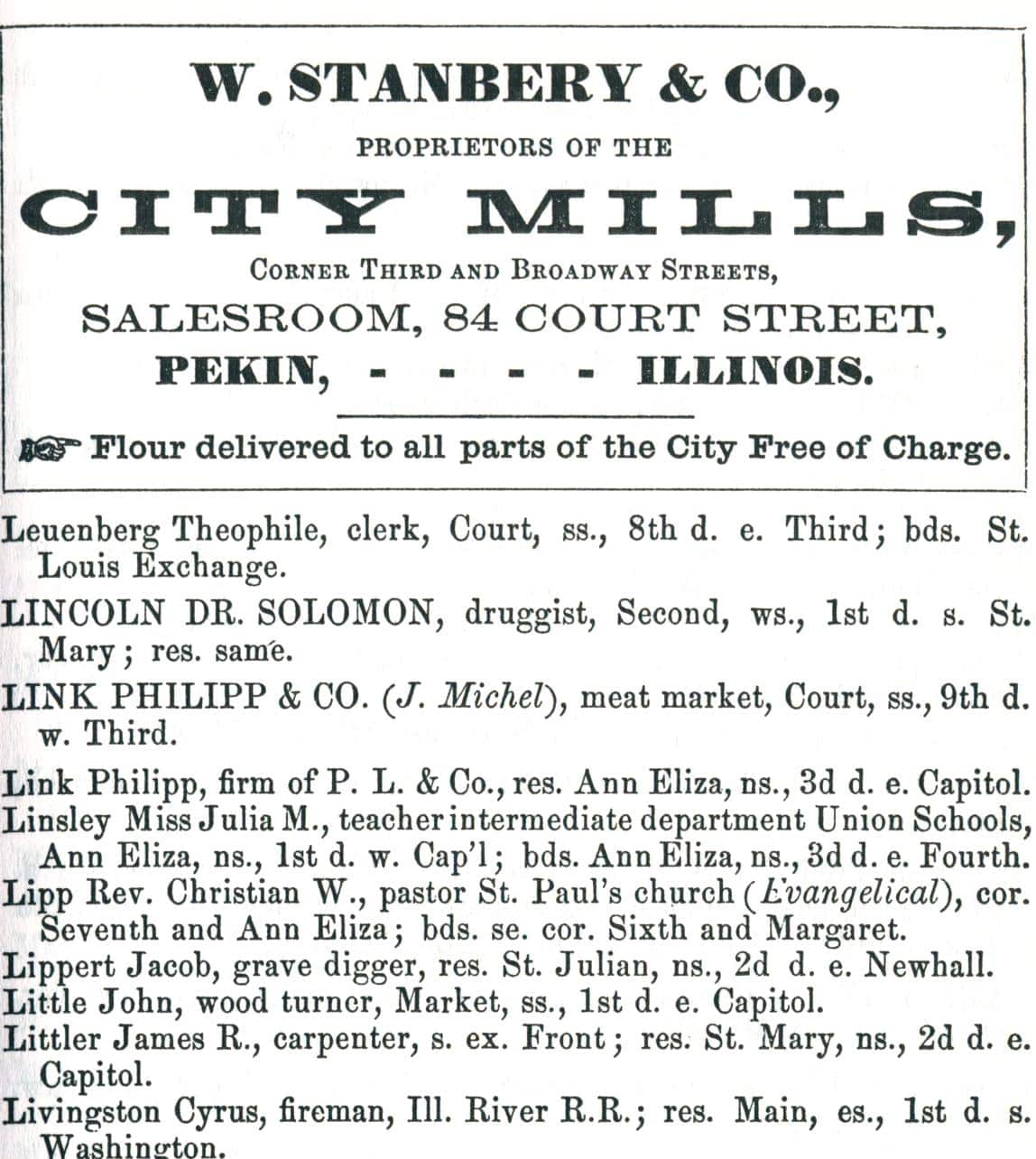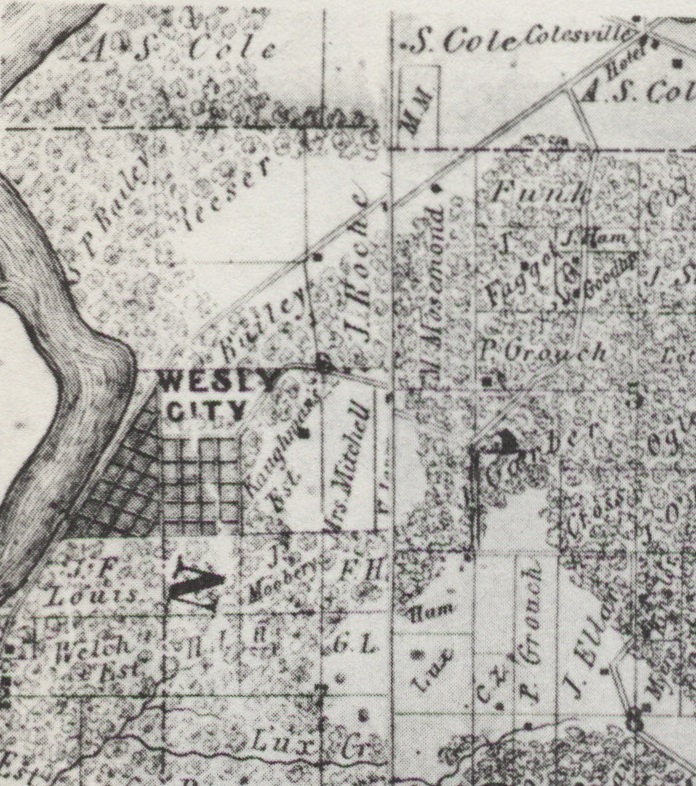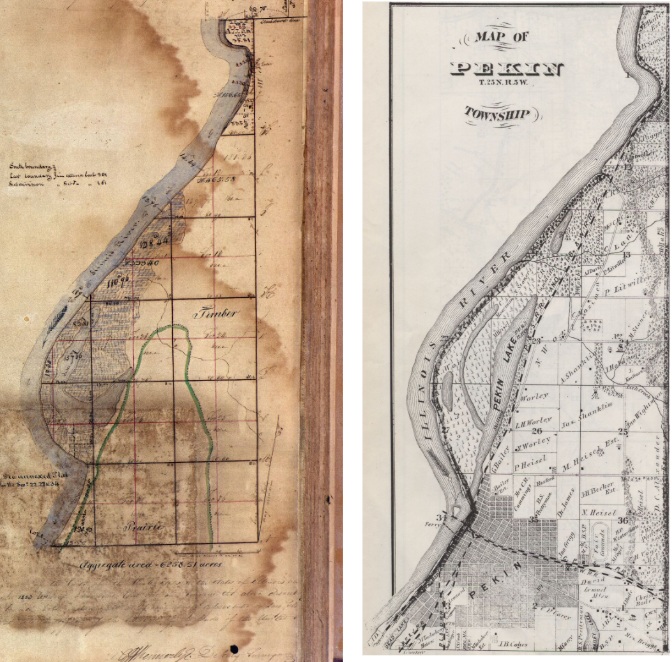Reading through the microfilms of the Pekin Daily Times on file in the Pekin Public Library’s Local History Room will provide a researcher with a wealth of information about the history of Pekin and Tazewell County. But the old newspapers of nearby communities also often have a lot to tell us about Pekin’s past.
A case in point is a remarkable anecdote related in the May 2016 issue of the Tazewell County Genealogical and Historical Society Monthly. The anecdote is an extract from the April 17, 1863 edition of the Peoria Morning Mail telling of the near death experience of a former Pekin resident named Little.
With the headline of “BURIED ALIVE,” the article uses the colorful, florid rhetorical style popular in those days to tell of how Little very nearly met his end when he was buried by people who thought he’d already met his end.
“A novel method of entertainment took place a few days ago, in the South Western part of this county,” the article begins. (“This county” means Peoria County.)
“A man who had been previously living in Pekin, had found out the effect of potations of ‘old rye,’ and on the whole, rather liked it.”
Or as we would say today, he was an alcoholic with a serious drinking problem.
“But report says that his home was found not to be the best possible place for that kind of enjoyment, inasmuch as there was a woman there who bore his name, and governed the household.”
That is, Mrs. Little was unhappy about his drunkenness and wouldn’t allow him to drink at home. In fact, it appears that Little and his wife may have been separated due to his alcoholism.
“This induced the male department of the establishment to vacate the premises whenever it was deemed necessary to have a ‘tear.’ The last instance of this kind is that to which we now particularly refer. The man went over to Lancaster, as the place where he could make his visit most successful.”
Lancaster was a small village northwest of Glasford – what’s left of it is centered around the intersection of Glasford Canton Road and South Coats Road.
“As is quite natural in such cases, he imbibed too largely, and became drunk – dead drunk – in fact, almost dead without the drunk. So far gone was he that some thought he was a ‘goner,’ and sent for a Justice of the Peace to hold an inquest, and ‘sit upon the body.’ But that functionary had grave doubts whether he had any legal right to usurp the prerogatives of Coroner Antcliff, and applied to the law to learn his duty. At the same time another messenger had been dispatched for the female department of the household at Pekin.
“These movements, of course, took time, and the inhabitants became uneasy at the protracted delay. They at last concluded that the Little defunct ought to be buried. He was taken to the graveyard, a hole dug, and the body covered with the ‘clods of the valley,’ in this case represented by a very loose sand.
“Contrary to all precedent in civilized countries, the head of the corpse was left above ground, because, as one of the officiators observed, it was ‘possible he was “possuming,”’ and then the Little wife would like to look upon the ‘dear deceased,’ when she came.
“At this stage of the proceedings, it was suggested that the fume of a Lucifer match applied just below the nasal appendage, had a marvelous resuscitation power in case of apoplexy.”
Matches in those days were commonly called “Lucifers” due to their high sulfur content which generated a potent stench when burned. An old word for “sulfur” is “brimstone,” and the stench and the flame of these matches reminded people of the “fire and brimstone” of hell, which in turn reminded them of Satan, formerly known as Lucifer.
“The experiment was tried. At the first application the dead man arose from his ‘oozy bed,’ at the second he exclaimed, ‘what in h—ll are you doing here?’ At the third the flexors and extensors of his right arm were put into rapid operation, and it is said that some of those engaged in the affair, think that the game of ‘raising the dead’ is not exactly a safe business.”
That’s a verbose way of saying that Little was so shocked and upset that he punched a few of the people there.
“The Justice of the Peace did not encroach on Coroner Antcliffe’s prerogative – Coroner Antcliffe had no prerogative in the case, as the ‘case’ had gone beyond his jurisdiction, and the Little wife from Pekin had arrived just in time to welcome her Little husband, not a clay-cold clod, but warm, living and well-to-do. All parties satisfied with the result, went home.”

The May 2016 Monthly notes that the 1861 Pekin City Directory lists a “John Little,” a wood turner who lived on Market Street, on the south side of the street, at the first door east of Capitol Street. No doubt that’s the Little who is the subject of the Peoria Morning Mail’s article. The Illinois Veterans Index 1775-1995 says John Little of Pekin, born about 1822 in New York State, served as a private in Company F of the 11th Illinois Cavalry during the Civil War, entering a three-year term of service on Nov. 29, 1861, but being discharged for disability at an unknown date prior to the end of his three years. Little’s brush with death near Glasford must have taken place after his discharge.









